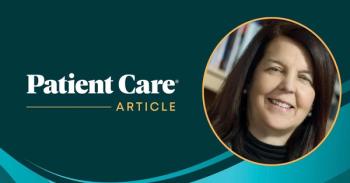
Should You Be Intimate With Your Doctor?
Being emotionally available and accessible is healing. Are you open to that part of medicine with your patients?
A new patient calls for an appointment. I ask, “What would you like to come in for?”
“Depression. Two weeks ago my doctor put me on antidepressants.”
“Why don’t you see your current doctor?” I ask.
“I feel weird discussing my emotions with someone who doesn’t have any.”
When doctors are fully present, vulnerable-even emotional, patients are more likely to be honest, transparent, and open. Sexual intimacy is, of course, inappropriate between patients and physicians, but emotional intimacy is essential in any healing relationship.
What patients really need is a human being who is being human, a whole person who sees the patient as a whole person. On her way out, a new patient says, “I feel like I just got a physical, met with a marriage counselor, and had a spiritual awakening.” We could all have comprehensive, personalized care, but here’s the paradox: We resist what we most desire: Intimacy. Intimacy means “in-to-me-see.” It’s when we see so deeply into another, that we find our own reflections and discover ourselves.
Beatrice, an elderly woman calls for a Prozac refill. I remind her of my office policy: no refills between appointments. She screams, “None of my other doctors made me come in. What’s wrong with you?” Upon arrival for her appointment, she’s fuming. After thirty minutes, Beatrice breaks down and shares how difficult it has been since her husband died last month. She feels isolated and scared. With tears in her eyes, she hugs me and then thanks me for getting her out of the house.
It’s Friday night when Christie calls for an antidepressant. I pick up on the second ring. “Hello, how can I help you?”
“This is the doctor? It’s almost midnight and you answered the phone!” Frazzled, Christie tries to explain herself. “Things are kind of tough right now, Pamela. I was just calling so you could prescribe me some antidepressants.”
We talk about her mother’s death and the challenges of raising her autistic child.
“Christie, I’m happy to see you Saturday morning.”
“I just can’t believe you answered the phone. I’m so excited, I don’t feel depressed anymore.”
Being emotionally available and accessible is healing. Sometimes I think maybe I am the antidepressant.
Pamela Wible, M.D. is a family physician in Eugene, Oregon. She is author of
Newsletter
Enhance your clinical practice with the Patient Care newsletter, offering the latest evidence-based guidelines, diagnostic insights, and treatment strategies for primary care physicians.































































































































